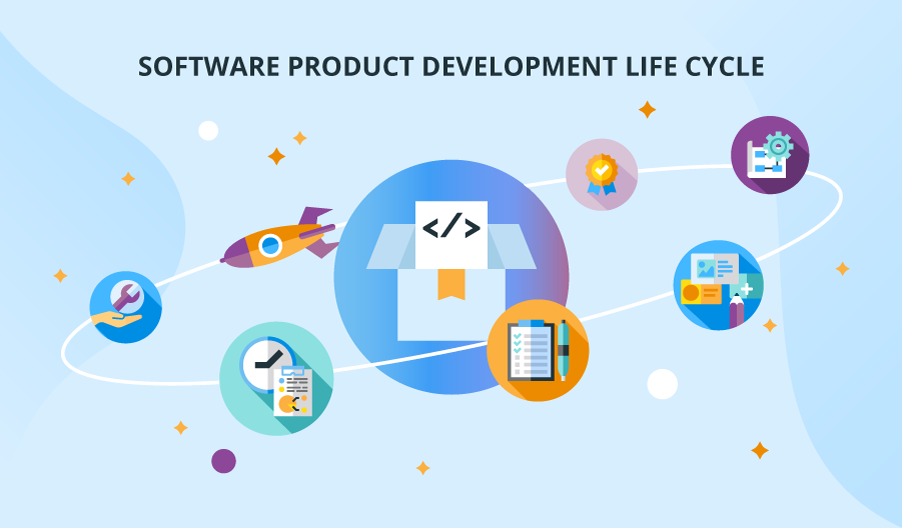Embark on a comprehensive journey into Offshore Software Development with our guide, Offshore Software Development: The Complete Guideline.’ This invaluable resource equips you with a thorough understanding of the intricacies involved in offshore software development processes. From selecting the right outsourcing partner to navigating cultural nuances and ensuring seamless communication, this guide covers every aspect to empower you in making informed decisions. Dive into the world of offshore development with confidence and gain insights that will optimize your software projects for success.
What is Offshore Development: Essence and Types
In today’s business world, technology is a driving force behind every aspect of an organization. To keep up with the ever-changing market demands and stay ahead of competitors, companies are increasingly turning to offshore software development.
Offshore software development refers to the practice of outsourcing software development tasks to a team located in a different country from where the company is based. It has become a popular option for businesses looking to reduce costs, access skilled talent pools, and gain a competitive advantage.

There are three main types of offshore software development:
- Offshore outsourcing – where the entire project is outsourced to a team in another country
- Nearshore outsourcing – where the project is outsourced to a team in a neighboring or nearby country
- Offshore development centers – where a company establishes its own dedicated offshore development center in another country
Each type offers its own set of benefits and challenges, depending on the specific needs and goals of the company.
What Services Can Be Outsourced?
Offshore software development covers a wide range of services, from simple coding tasks to complex product development. Some of the most commonly outsourced services include:
- Custom software development
- Web and mobile application development
- Quality assurance and testing
- Software maintenance and support
- Database management
- Cloud computing solutions
Offshore Development Benefits
Outsourcing software development has numerous benefits, including:
- Cost savings: One of the main reasons companies choose to outsource is to reduce costs. Offshore teams often operate in countries with lower labor and operational costs, allowing businesses to access skilled talent at a fraction of the cost.
- Access to specialized skills: Offshore development allows companies to tap into a global talent pool, gaining access to highly skilled developers and experts in various technologies.
- Increased efficiency: Outsourcing tasks to specialized teams can lead to increased efficiency and faster project completion. This is especially beneficial for companies with limited resources or tight deadlines.
- Flexibility and scalability: Offshore development offers flexibility in terms of team size and project scope. Companies can easily scale up or down their team depending on project needs, without the hassle of recruitment and training.
- Focus on core business activities: By delegating non-core tasks to offshore teams, companies can free up resources and focus on their core business activities and goals.
Readmore: What is an offshore development center?
Offshore Software Development Challenges
While outsourcing software development has many benefits, it also comes with some challenges. These include:
- Communication barriers: Working with a remote team can often lead to communication issues, especially when there are language and cultural differences.
- Time zone differences: Offshore teams may operate in different time zones, making real-time collaboration and communication challenging.
- Quality control: With a remote team, it can be difficult to monitor and ensure the quality of work being produced.
- Data security risks: Sharing sensitive data with a third-party offshore team may pose potential security risks if proper precautions are not taken.

Offshore Software Development Steps
To successfully outsource software development, companies should consider following these steps:
- Define project requirements and goals: Before outsourcing, it’s important to have a clear understanding of the project requirements and objectives.
- Research potential offshore partners: Do thorough research on different offshore software development companies to find one that best fits your project needs and budget.
- Communicate effectively: Establish clear communication channels and protocols to avoid misunderstandings and ensure effective collaboration.
- Set realistic expectations: Be transparent about timelines, deliverables, and budget to avoid any misunderstandings or disappointments.
- Define project management processes: Establish a project management process that works for both the offshore team and your company to keep everyone on track.
- Regularly review progress: Schedule regular check-ins and milestones to review the project’s progress and make necessary adjustments if needed.
- Test and quality control: Prioritize testing and quality control to ensure the final product meets your standards.
- Protect sensitive data: Implement proper security measures to protect sensitive data when working with an offshore team.
- Build a strong relationship: Invest time in building a strong relationship with your offshore team to foster trust and effective collaboration.
- Evaluate and improve: After the project is completed, evaluate the entire outsourcing process and make necessary improvements for future projects.
How to Choose the Right Offshore Software
Outsourcing software development has become a popular trend for businesses looking to cut costs and gain access to specialized skills. However, choosing the right offshore partner can be a daunting task. Here are some tips to help you select the best fit for your project:
Define Your Requirements and Goals
Before beginning your search, it’s important to have a clear understanding of your project’s requirements and goals. This will help you identify the specific skills and expertise you need from an offshore partner.
Research Potential Partners
Do your research to find potential partners who have experience working with companies in your industry and have a proven track record of delivering quality projects on time and within budget.
Consider Communication and Cultural Fit
Effective communication is crucial for successful collaboration with an offshore team. Consider the time zone differences and language barriers that may impact communication, as well as cultural compatibility.
Evaluate Technical Skills and Quality Standards
Before finalizing a partnership, thoroughly evaluate the technical skills of the potential partner. You should also inquire about their quality control processes to ensure they meet your standards for delivering a high-quality product.
Discuss Security Measures
Outsourcing software development involves sharing sensitive information, so it’s important to discuss security measures with potential partners. This includes data protection protocols and procedures for handling confidential information.
Define the Project Scope and Timeline
Clearly define the scope of your project and discuss timelines with potential partners. This will help you determine if they have the capacity to handle your project within the desired timeframe.
Establish a Project Management Plan
Establishing a project management plan is essential for ensuring effective communication, tracking progress, and managing expectations. Discuss different project management methodologies with potential partners to find the best fit for your project.

Readmore: Offshore Software Development Company
Consider Pricing Models
Offshore software development can provide cost savings compared to in-house development, but it’s important to consider pricing models and negotiate a fair price with potential partners. This could include fixed pricing, time and materials pricing, or a hybrid approach.
Have a Plan for Handling Conflicts
Despite thorough planning and communication, conflicts may arise during the outsourcing process. Having a plan in place for handling conflicts can help mitigate any issues that may arise and ensure a smooth working relationship with your offshore partner.
Continuously Monitor and Evaluate Progress
Once the project is underway, it’s important to continuously monitor and evaluate progress to ensure that the project stays on track. This includes regular check-ins with your offshore partner and making any necessary adjustments to meet project goals and deadlines. Development Outsourcing Company
Conclusion
Outsourcing software development can be a valuable strategy for businesses looking to increase their capacity, save costs, and access specialized skills. However, it’s important to carefully consider the potential risks and establish a thorough outsourcing plan before embarking on this journey. By following these best practices, you can set your business up for success and achieve your project goals through an effective partnership with an offshore development company. So, whether you’re a small startup or a large corporation, outsourcing software development can be a powerful tool to help take your business to the next level. So, it’s important to research and carefully consider all aspects before choosing the right partner for your project.


